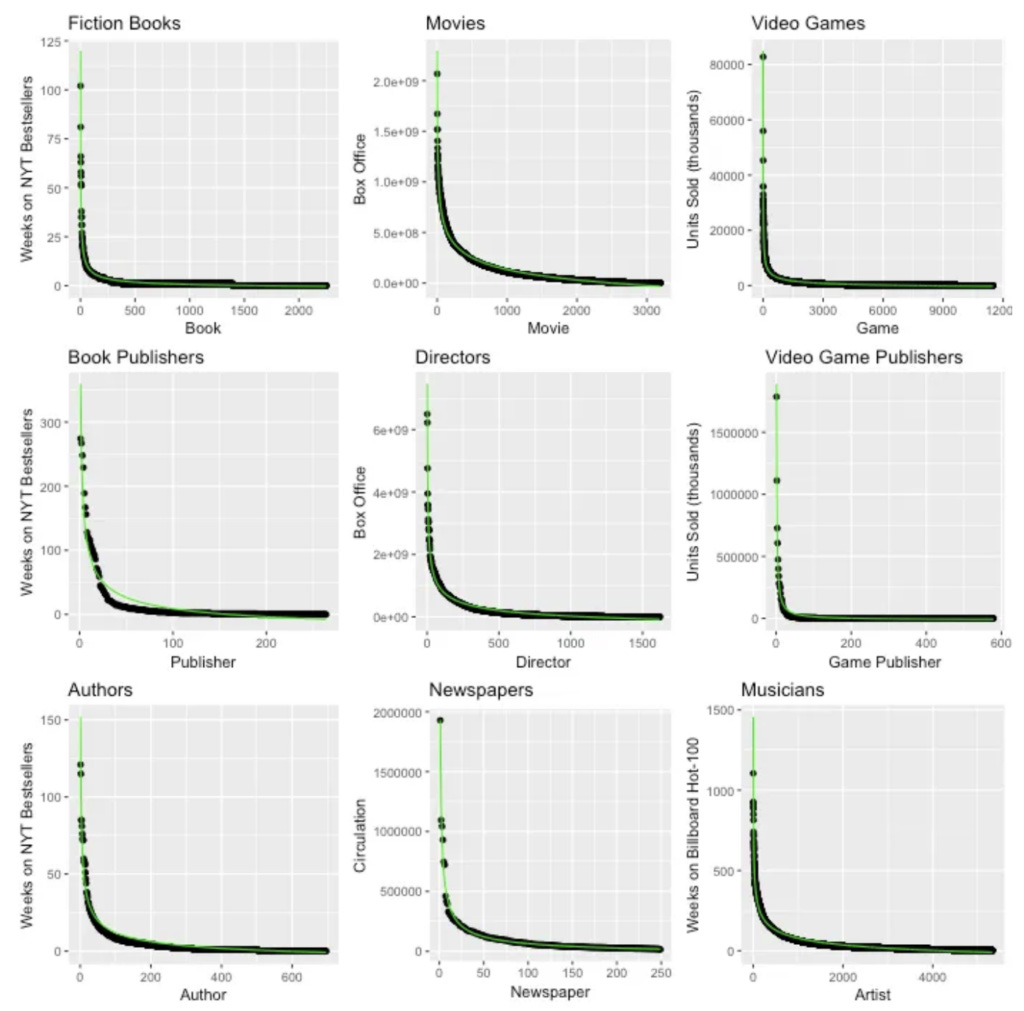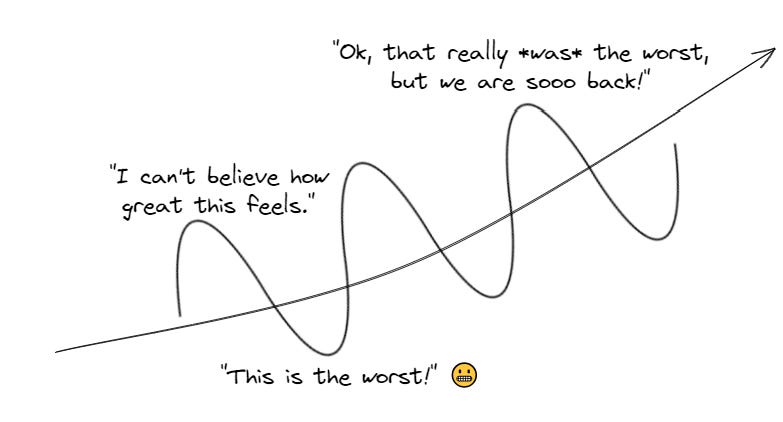Three Years Of Writing Online
I'm sharing a few hard-earned lessons, tell you how much I make, and why writing in public is a good idea but not for the reasons you might think.
Sometimes it feels like writing saved my life.
Not the business of writing. That one’s tricky. I’ll tell you how much I make with it in a bit.
No, I am talking about the process of writing, the act of spilling out everything I carry on a blank page. The meditation that connects every thought, every feeling, every opinion, all the good, bad, and ugly stuff that rests within me.
Writing remains one of the best ways to discover who I am, to go deeper, to connect with my subconscious, and to uncover the flaws and gaps in my own thinking.
It’s been three years since I started this Substack and writing in public has enriched my life in many unpredictable ways. But when someone asks me whether they should write in public, I hesitate. Because writing online can be both incredibly powerful and very frustrating.
Let me share a few hard-earned lessons and explain why writing in public is a good idea — but not for the reasons you might think.
Before we dive in, let me be clear: writing now pays my bills and that’s pretty remarkable. I’m stringing together words in an adopted language, I’ve made countless mistakes, and I’m not good at marketing myself (or to frame it more positively: the path of figuring out what I want to do has been long and mysterious). And yet it works and I’m grateful that it does.
Maybe I’m delusional, but I think this path is now open to many people around the globe. The barriers to entry for online media are low and while it’s not perfect, I think it’s fairly meritocratic. Good work does eventually get rewarded.
But to me, writing is about so much more than earning a living. It shifts your mindset from that of a consumer to that of a creator.
Everyone needs at least one creative outlet in their lives. We spend most of our days consuming what others have made, whether it’s reading, watching, or listening. I believe it’s crucial that you cultivate at least one place in which you truly express yourself. Forget about sharing and forget about money. Just find one creative activity that you enjoy and that allows you to express and reflect on your unique experience of life. I don’t know what suits you best. For me, it has been mainly writing.
Writing can be a way to make a living, it can help you sharpen your thinking, introduce you to new friends, and become a path to opportunities you couldn’t have imagined.
But most importantly, it should be enjoyable. It should allow you to grow, to connect with yourself, to express yourself, and to meditate and reflect on your life.
That’s important because the reality:
Writing is not a great business
Yes, there are outliers, particularly in technology and finance. We all know success stories of individual writers like Ben Thompson or Packy McCormick or publications like Morning Brew. There are a few paths to turn words into a small fortune.
First, you can cover a niche (what journalists call a beat, as in the crime, sports, or politics beat). This could be something like semiconductors, professional sports, value stocks, short selling, crypto, global markets, venture capital, the media industry, you name it. If you’re good at research and building industry networks and if the niche is valuable, you should be able to build a decent business (maybe even a very lucrative one).
Second, you can identify and ride the latest grift wave and, say, create an AI newsletter right when interest is about to grow exponentially.
Third, you can be a pundit offering some mix of entertainment and insights at the intersection of politics and culture (lots of politics on the Substack top earnings charts).
Fourth, you can use writing to build an audience and monetize indirectly, through courses, coaching, premium communities, etc.
But in general, writing for a living can be a frustrating experience.
First off, all media follows power laws. A small handful of creators and their works capture almost all of the attention and thus almost all the money (Andrew Chen recently wrote about this).
What if you’re not an outlier? The Author’s Guild reported that the average U.S. full-time author “earned a median annual income from writing-related activities of $23,329 in 2022, of which an average of $12,000 was from their books.” (The median American worker brings home an estimated $54,132 a year.)
Now if that doesn’t scare you off, I don’t know what could.
And I regret saying it, but it makes sense.
As a writer, you compete for attention with the world’s best-engineered addiction machines. I’m talking about TikTok, Netflix, YouTube, video games, even good old TV. And you’re supposed to engage your readers with just… words?
It’s simply harder than ever to earn your audience’s attention. And it will only get more difficult with the coming flood of AI-generated content.
The second issue is that we’ve been trained to think of online content as free.
Trust me, I get it. I also only pay reluctantly for content. But this creates tension.
For example, I recently published two popular free pieces, key lessons from Alice Schroeder’s time with Buffett and Focus: The Last Superpower? These were free because it felt the ideas were important to share (Buffett’s life being misinterpreted is one of my pet peeves). But while they were popular with readers, during those weeks the total number of paid subscriptions decreased.
Subscribers of any service churn all the time and for all kinds of reasons. People need to save money, are too busy, lose interest, or don’t like the direction in which the publication is going. But in order to see any growth, you have to constantly get up on the soapbox and look for new subscribers.
And you have to wrestle with the paywall and its very unfortunate trade-off. You want to share your work with the widest audience possible. But to any publication that’s too small for ads, free readers are simply not that valuable. For these reasons, I’ve always struggled with the paywall. Asking people to pay for writing is not a great way to make a living. And yet I don’t think the average writer wants to be, or should be, a coach, community designer, fund manager, or teacher of cohort classes.
Over the years, I’ve done a variety of part-time work to supplement my income from writing. I’ve done consulting and research work for hedge funds, I’ve written and podcasted for a fintech startup, and I regularly do some audio and translation work for a German publication. If you want to write professionally, you have to face the uncomfortable prospect that writing alone might not be enough — at least not for a while.
Oh, and of course you’re on your own. If you take a break, as I did last summer, you simply don’t earn. Tough luck.

Today, my run-rate income on Substack is $128,000. That’s not what I earned in the past 12 months but what I would earn over the coming year if everything remained the same.
By comparison, the average individual income in New York City was $107,000 in 2020. Needless to say, the cost of living in New York is absurdly high (I could move to a cheaper place and perhaps I will, but that’s a conversation for another time). As a writer I am also self-employed — I pay for my own health insurance and no employer contributes to my retirement.
On the one hand, it’s more than many writers make and enough of an income to sustain myself. On the other hand, there’s not much room for error (or inflation) and it would not be enough to raise a family. And the opportunity cost compared to a mid-level role at an investment firm is substantial. I will spare myself more detailed math but even compared to making $200-300k a year plus benefits at family office or allocator (let alone an asset manager) … pretty soon we’re talking serious money.
(By the way, whatever emotional reaction you experienced when you read those numbers is worth examining. I believe it is absolutely crucial that we understand our own beliefs and emotional relationship to money. These can become serious obstacles on the path to wealth and financial freedom or lead us astray in The Maze. But that’s a topic for another post.)
Clearly, this has been a labor of love and not a trip to financial freedom. So, why do it?
You do it because earning more money would be nice, but continuing to write feels important. You do it because not doing it seems inconceivable.
You do it because you don’t know where it will lead and because you can’t know unless you keep doing it.
You do it because you feel you have to, because you can’t help yourself. Because you need to keep going to, hopefully, one day arrive at great work.
In the words of Bukowski, don’t write professionally unless it comes “bursting out of you in spite of everything.”
With that out of the way, let’s talk about some reasons why writing in public can be invaluable in support of your profession, rather than as a replacement.
The magic of timelessness optionality
David Perell once coined the term ‘personal monopoly’ to describe one’s ‘unique intersection of skills, interests, and personality traits.’ Pair these with good writing and you can create evergreen pieces of digital real estate.
Founders still read Paul Graham’s blog, investors still read Graham Duncan’s essays or trawl through the archive of Michael Mauboussin. Collections of Buffett’s letters used to be passed around among new generations of investors like scripture. Being known for high quality and timeless writing can pay enormous dividends over the course of your career, particularly in the domains of finance and technology.
People may reach out with ideas, information, or simply gratitude. Connections are made, friendships begin, doors open. You put yourself out there to increase your chances for serendipity to happen.
The bad news: good writing is hard work, some of your work will suck, and you have to prepare yourself for rejection.
Yes, there are some writers who seem to wake up, have a coffee, take a walk, and reliably step into creative flow with polished work spilling out of them like a river. Stephen King comes to mind. Or maybe Matt Levine. They are very good and they are prolific. They are deeply plugged into the source of their work.
Occasionally, I’ve experienced pieces flowing out of me. The Reading Obsession was like that. It just poured out of me in a couple of hours. But most of the time, writing is work. Sometimes it’s even a slog. You write, you edit, you write some more, you edit some more. You daydream about winning the lottery and taking off to travel the world. You get up to rearrange the plants, do the dishes, text a friend. You remember what you’ve written about staying focused and sit down to edit some more.
Then you start to worry.
You worry whether people will like the work.
When you create, you worry what the world will think.
Once you hit publish, you worry the world will not care.
Sure, a few people may tell you how much they dislike your work. But most people simply do not care. They are busy. In the beginning, it’s as if you and your work don’t exist. All those hours you invested seem to vanish in the vast attention vortex, they are swept away in an ephemeral flow of online content.
That’s the price you pay for being a creator and not merely a consumer.
You learn to accept rejection. You don’t take the world’s indifference personally. You begin to understand the meaning of ‘process over outcome’, that engaging in the act of creation is a privilege already. You abandon expectations and come to terms with your place in the universe.
Like I said: I think of writing as a meditative practice, a way to understand life, the world, and my role in it. It can be very humbling, and that is a good thing.
Finally, despite all your efforts, some of your work will inevitably suck.
Study the early days of your favorite creators — writers, musicians, painters, whatever. Scroll down the feed of any substack, any podcast, any YouTube channel. Unless the creator had been in the game for a while already, their early work won’t be nearly as good or polished. And even the great ones miss the mark from time to time. Part of being in the game is that sometimes you swing and you miss. It happened to me and it will happen again.
The good news: you will get better and it feels great to improve.
If you commit to writing consistently, and invest in your education, you will absolutely get better. And that feeling can be intoxicating.
The satisfaction of learning and improvement gets people addicted to sports, games, and competitive activities like investing. Its lack is what makes many corporate jobs so draining. You need a clear feedback loop, a tangible record of your actions, a scoreboard of your progress.
I am not talking about growing your audience, though that can become its own game.
I am talking about looking at a piece of work and knowing that you’ve progressed. Having that jolt run through your body that yes, you’ve done something you could not have a year or two ago. You’ve figured out a more difficult puzzle. You’re lifting heavier weights. You’re running farther, faster. You have, for lack of a better word, increased the level of magic you carry.
There will still be setbacks. But you can tell that both highs and lows are gently sloping upwards.
“We underestimate the cumulative effect of work,” Paul Graham wrote in his essay on doing great work. “Writing a page a day doesn't sound like much, but if you do it every day you'll write a book a year. That's the key: consistency. People who do great things don't get a lot done every day. They get something done, rather than nothing.”
I don’t consider my writing to be great work, but I hope that one day great work will emerge from it. And trust me, I still have a lot to learn. But I have figured out one thing: showing up matters. Showing up turns into its own reward.
Some days I make no progress. Some days I’m going in reverse, abandoning drafts and ideas, jumping around to figure out what is worth working on (and sometimes nothing does as hundreds of pieces in the draft folder show). Do any kind of work consistently and you learn that some days you don’t win. You show up with all the energy, all the enthusiasm, but you just run into a wall. But you did show up. And you can look at yourself in the mirror and honestly say that you tried. And that you will try again tomorrow. And, eventually, the many somethings will add up to a great thing.
The bottom line
Do I recommend you write online for a living? No. Not unless you have one of the few proven paths I mentioned in mind. Or not unless you are a bit mad and can’t help yourself. In which case you won’t listen to anyone.
Do I recommend you write regularly and find the courage to share? Hell yes. But write as a practice, as a meditation, as a discipline to enrich your life and career.
Writing will clarify your thoughts, expose your lack of understanding in any subject, and make you a better communicator. “For more than forty years, I’ve studied the documents that companies file,” Buffett once lamented. “Too often, I’ve been unable to decipher just what is being said or, worse yet, had to conclude that nothing was being said.”
To use my framework for work, writing often feels like rolling boulders uphill. But publishing consistently is like rolling a snowball: it compounds. It can also feel like planting seeds for a rich harvest years in the future. It may prepare you to ride a wave when it appears. And who knows, if you share the right idea at the right time, you may trigger an avalanche that changes the world.
Writing online gives you access to near infinite leverage. But writing also forces you to find stillness and face your own inner world. It teaches you to accept that you are but one voice in the world’s choir. It teaches acceptance and equanimity in the face of temporary defeat.
Above all, I have found writing helpful on the journey to my life’s work. I hope some of my writing will stand the test of time. But I know that much of it will turn out to be connective tissue, a bridge leading me to ideas yet to be discovered. Crossing that bridge requires showing up consistently to do the work.
The bottom line is that writing has enriched my life immeasurably, but the financial trade-off has been significant. My path has been one of compulsion, not logic.
So, if you write in public, don’t write to get rich. Don’t write with the goal of creating optionality or triggering serendipity. Forget about all of that. Write to express yourself, to follow your curiosity, to get to know yourself. Write to better understand the world. Write to meditate. Write to grow, to be creative, write because it’s fun.
Above all, write honestly. Write about what feels important to you. Write from the heart. Write to enrich the world of your readers for a short moment. Life is too short for anything else.
I don’t always get this right. I’ve written my share of bad pieces. I’ve given in to the distraction of writing things because I thought people would like them or sign up for a premium subscription. I’ve made my share of mistakes. The nice thing about writing is that tomorrow, you get a blank page and a chance to do better.
If you write, write like your life depends on it. Write like you have to save yourself. Maybe you do.
Thank you for reading. Now start writing.
Frederik
Getting better at writing
It’s not that complicated: practice. Write, publish, and get feedback.
Also: read a lot. Try to mix in some classics, some works that have stood the test of time but don’t get hung up on it. Have fun. Any reading is better than no reading.
Start by building small writing habits:
Make time for journaling (I try to journal every night).
Try free writing, for example in the form of hand-written morning pages. I do these when I have time or when I am stuck. It’s a great way to de-clutter your mind, generate ideas, and learn about your subconscious.
A shorter version is this quick 10 bullet brain dump.
If you lack ideas, tap into your night shift. Brainstorm some ideas and ask your subconscious for guidance. Then let it go and give yourself time for walks with no input — no podcasts, no music, no calls. Record any ideas by talking into your phone (I use Otter.ai to get a transcript) and use those as your trailheads for writing.
If you have not been writing much, you will likely start with ‘clutter’ and have to work your way through some topics that need to get off your chest. Give it time. Keep going. See what emerges.
If you take it seriously, look for feedback and teachers. You could work with a dedicated editor or try to find a writing group. I briefly had a great group which unfortunately disbanded during COVID. These are not easy to find and sustain but can be a motivator and offer invaluable feedback. Either way, feedback from trusted sources can be a powerful accelerant.
Another option is taking a course that can help you skip ahead to the next level. I wish I’d done that when I started out. It would have saved me a lot of time and my readers some long-winded work. I never received formal training — no degree in journalism or English or literature, no job at a media company. Finding my voice took a lot of time.
David Perell has been the pioneer in this space. I remember when he was the first and only ‘writing guy’ on Twitter and announced his course. I should have jumped on that opportunity at the time. His class has since launched a number of careers and he is building a legitimate online writing school. Oh, he also recently created a beautiful podcast concept called How I Write that’s worth checking out.
David’s next Write of Passage course is in October (disclosure: affiliate link). David offers a ‘test drive’ workshop and has interviewed some prolific new creators like the Cultural Tutor. My friend Jim O’Shaughnessy offers ten scholarships if you’re interested but the course is outside your price range (application deadline is September 20th).
Lastly, I don’t read a lot of books about writing but there are some that I enjoyed. Importantly, don’t obsess over any one writer’s habits. The more you learn about other writers the more you realize that they all developed their own routines. They all have their own individual relationship to the craft. You have to find what works for you.
Worth checking out:
On Writing by Stephen King
The Creative Act by Rick Rubin
The Writing Life by Annie Dillard
Bird by Bird by Anne Lamott
Nobody Wants to Read Your Shit by Steven Pressfield (also: The War of Art)
The Artist’s Way by Julia Cameron
A Swim in a Pond in the Rain by George Saunders for an engaging deconstruction o
f some great writing
If you have other favorites please share them in the comments.









A $128k annual run-rate is an achievement - congratulations.
Super impressive that you have hit the window where the writing is paying you. That run rate is definitely an impressive one. I am on holiday, and have more time to read, and dream about “my desire to write again” (as one does), so this was an inspiring read for me. I won’t try and boil the ocean, I will just write a little bit per day and share it (micro blogging). This rally resonated 🙏🏾